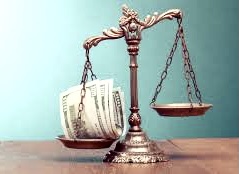
The issue of entitlement to costs is increasingly relevant to estate litigation, as the stakes are often very high in emotionally fought battles between the litigants. Dn v MR 2020 BCSC 475 reviewed the law relating to a litigant’s entitlement to an award of court costs. Costs are generally awarded to the successful party unless the court orders otherwise Rule 16-1(7).
The Purpose of Court Costs
The purpose of court costs was summarized by the BC Court of Appeal in Giles v. Westminster Savings and Credit Union. The purposes for which cost rules exist must be kept in mind in determining whether appellate intervention is warranted.
In addition to indemnifying a successful litigant, those purposes have been described as follows by this court:
- Deterring frivolous actions or defenses Houweling Nurseries Ltd. v Fisons Western Corp. (1988) 37 BCLR (2d) 2 at p.25
- To encourage litigants to settle whenever possible, thus freeing up judicial resources for other cases. Bedwell v McGill 2008 BCCA 526
- To have a “winnowing” function in the litigation process by requiring litigants to make a careful assessment of the strength or lack thereof of their cases at the commencement and throughout the course of the litigation, and by discouraging the continuance of doubtful cases, or defences. Catalyst paper v. Companhia de Navegaccao Norsul 2009 BCCA 16
- The court’s discretion to order otherwise must be exercised judicially, bearing in mind a nonexhaustive list of factors that includes hardship, earning capacity, the purpose of the particular award, the conduct of the parties in relation to the litigation, and the importance of not upsetting the balance achieved by the court in relation to the substantive issues. Gold v Gold (1993) 106 DLR (4th) 452 BCCA
- The successful party is the party was achieved substantial success at the trial or hearing. Fotheringham v Fotheringham 2001 BCSC 1321.
- The party who asked the court to order otherwise bears the onus to persuade the court why should do so. SDW v CWW 2006 BCSC 162
- Financial hardship, without more, is not a sufficient basis for the court to exercise its discretion to depart from the usual rule that successful parties are entitled to their costs. Brown v. Kucher 2016 BCSC 194
- Where an offer to settle has been made, the court may award double costs for all or some of the steps taken after the date of delivery or service of the offer. Rule 11-1(5)
- As a general rule, an award of double costs should be made against a party who did not accept an offer to settle that should in all the circumstances of been accepted. Hartshorne v . Hartshorne 2011 BC CA 29
- In determining whether a double costs award should be made, the court may consider any factor the court considers appropriate, including whether the offer was one that ought reasonably to have been accepted upon receipt or at any later date, the relationship between the offer and the judgment, and the relative financial circumstances of the parties. Rule 11-1(6).




